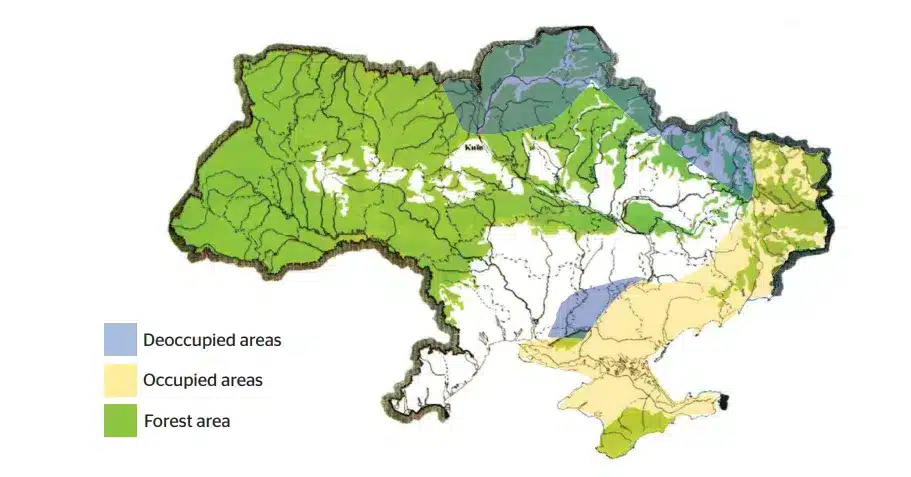The European Pallet Association (EPAL) has escalated its crackdown on conflict timber. Yesterday, it warned Ukrainian exporters that it would revoke operating licenses if ‘illegal and conflict timber’ entered the pool.
The warning came after a senior Ukrainian official was accused of operating a pallet racket where more than 80% of pallets produced by one of the country’s pallet suppliers used illegal timber.
It alleges that the official is the head of an organised criminal gang, earning hundreds of millions of dollars from the illegal pallet scheme.
In a letter obtained by Wood Central, EPAL Managing Director Bernd Dorre said that even a first violation will now result in license revocation.

In June, Wood Central reported that EPAL was taking action against the supply of substandard Euro pallets and using wood from illegal sources.
The EPAL is the world’s largest pallet pool, with over 650 million EPAL-branded pallets and 20 million box pallets in circulation. More than 1600 registered licensees participate in the scheme, producing and repairing pallets.
EPAL is responsible for protecting its reputation and integrity; however, critics have raised concerns over its supply chains because it does not require licensees to hold third-party forest certification to participate.
According to Mr Dorre, the EPAL has “repeatedly received third-party information that illegally cut wood is used for the production of EPAL Euro pallets in Ukraine.”
The suspicion is “based on the discrepancy between the prices of EPAL pallets on offer and the prices for wood at official auctions in Ukraine.”
He also noted the gap between the purchase volume of legally cut wood and the total sales volume of timber and wood products; he suggested that a significant share of pallets coming from the Ukrainian pool are from suspicious sources.

Wood Central understands that the suspicions relate to a Ukrainian investigation with suspicions levelled at a major pallet supplier, Pavlo Semeniuk, who serves on the Kovel City Council in the northwest of the country.
It alleges that Pavlo Semeniuk, Chairman of several Ukrainian Standing Committees, including land relations, planning, agriculture and environmental management, sold almost 60,000 cubic metres of illegal and conflict timber into the pallet pool.
“In particular, from May 2022 to March 2023, the Ukrainian enterprises exported pallets and boards abroad in terms of a total volume of 141,140 cubic meters of lumber. For the manufacture of such a volume of lumber, about 352 thousand tons are needed. cubic meters of wood. And during this period, the volume of wood officially purchased by these enterprises amounted to only 85,835 cubic meters,” the report said.
“That is, there is a suspicion that there was four times more illegal timber in these related enterprises during the specified period than legally purchased.”
A pre-trial investigation alleges that a scheme involving the illegal felling of timber was processed and sold abroad, causing grave concern for Ukrainian state interests.
Wood Central understands that several enterprises connected to the allegation export pallets under one EPAL license (UA-015HE), which is connected to the company owned by Mr Semeniukby in a practice prohibited by the rules of the EPAL.







